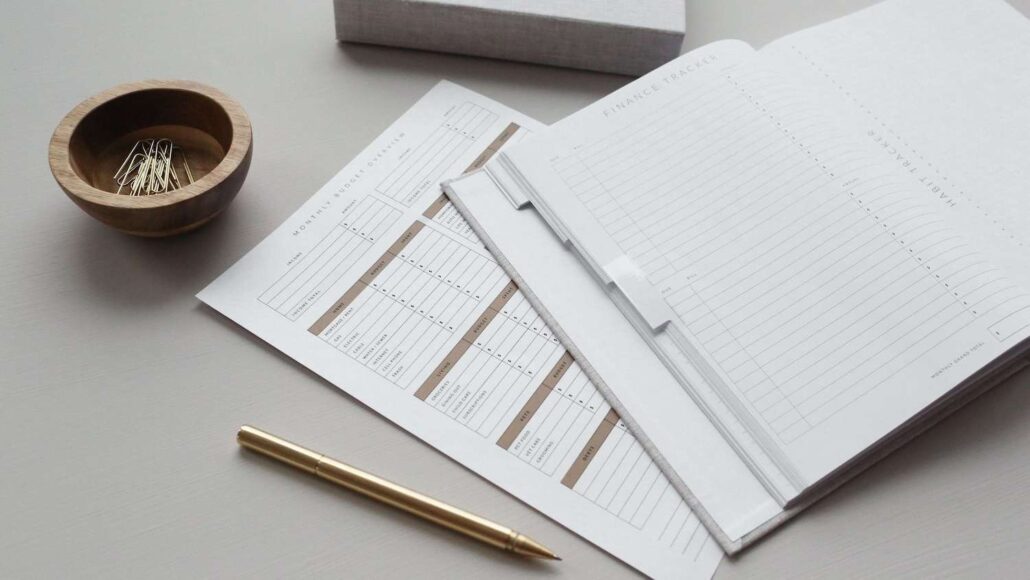Budgeting is one of the most mainstream topics of personal finance. If you search “How to get better with my money”, you’ll find that having a budget is the overwhelming answer according to financial experts on the internet.
Of course, having a budget makes sense. To build wealth, you need to spend less than you earn. A budget is a tool that helps you build awareness around and set intentional limits on your spending so that you live within your means.
But, do you really need a budget?
I won’t answer this question for you, but I will say confidently that a budget is not necessary, nor is it something that everyone needs. Sometimes, a budget can be outright counterproductive. At Thinking Big Financial, we don’t use budgets in our financial planning process. In this post, I’ll share why we don’t use budgets and what we do instead to help people manage their cash flow.
Challenge your budget mindset.
If you’re team “budget everything,” that’s great. A budget can provide a clear framework for allocating your expenses so that they don’t get out of control, especially if you have no idea where to start. For example, the 50/30/20 budget allocates 50% of your after-tax income on necessities, 30% on wants, and 20% on savings and paying down debt. .
However, as practical as they seem, a budget is often too rigid to adapt to your life. Imagine that your personal finances are a car; the budget is the four lane highway you’re cruising on. Maybe that highway suddenly goes down to two lanes, or there’s construction for 10 miles, or you get caught in a speed trap; or maybe there’s no traffic and other drivers seem to be in a good mood. Whenever the circumstances on the road change, you’ll likely have to change lanes, slow down, or even get off at a rest stop. You can’t keep traveling in the same lane forever, just like you can’t adhere to the same budget forever. Life just won’t let you do that.
And how many people really like making a budget? Maybe some (I was obsessed with budgeting for a time), but most of us find the task tedious and a waste of effort. Our highway of life changes, and the budget we toiled away at suddenly becomes obsolete. Moreover, a budget can cause undue stress. Changes in circumstances and surprise expenses may chip away at your confidence, and you end up thinking you’re the problem.
The simple reason why we don’t use budgets with clients? Life is always changing and there are better ways to plan.

Take a bird’s-eye view of your cash flow.
Your cash flow – all of the money that flows in and out the door– is the foundation of your financial plan, which is why financial advisors focus on it so much for budgeting. But if life–and thus your cash flow–is always changing, how do you manage it so you can reach your financial goals?
Here is how we approach cash flow as part of a holistic financial planning process:
We first estimate a “typical” year of spending (I use quotes heavily here, because every year is different). We estimate using whichever way makes the most sense. Sometimes people use one credit card for most of their spending, so we look at an annual statement; or we take a few months of credit card spending to get a sense of an average. Other times people estimate spending by jotting down every monthly and annual expense they can think of (rent, utilities, groceries, etc.) and multiplying the total by 12 months. Once we have the full year’s worth of average spending, we compare spending to annual take-home pay, and ask, “What’s left over?”
After doing this exercise, you’ll find you’re in one of three situations:
- You have a surplus of cash at the end of each year.
- You have a deficit of cash at the end of each year.
- You’re spending exactly the income you bring in each year.
Knowing your situation helps to inform the next steps of your financial plan, such as figuring out how much you can save towards your future goals, or whether you can afford to upgrade your living situation, change your work situation, etc.
This bird’s-eye view also helps keep you out of the weeds. It’s usually not worth trying to track every little expense, because again, life is always changing and each spending category fluctuates. A full year of income minus your spending yields one simple number: The money that generally is (or isn’t) left over.
Decide what to do differently (if anything).
After seeing your yearly cash flow picture, you might find that you’re overspending and need to restructure your expenses. Or you may find that after all your expenses you have a surplus of cash each year that you could invest , but haven’t because you didn’t know it was there (because you were spending it each month!).
At this point in the process, it’s time to decide what changes (if any) you should make to your cash flow structure and behaviors. If there’s an extra $200 per month that you could put toward future opportunities, treat it like a bill. Decide that, going forward, you will automatically transfer that $200 into a special savings account. If your spending is too high, you realize you need something to hold yourself accountable – like a budget – for a while as you assess how much you can spend month-to-month. Or maybe you’d benefit from keeping a limited amount of money in your checking account and using your debit card for all expenses.
Do you really need a budget?
Again, only you can answer that question. Hopefully, this post offers some perspective on how a budget might (or might not) work as a tool in your overall financial plan. It may be helpful for a short period of time as you establish spending guidelines, or to help you regroup. But again, I’ll say that you don’t need a budget just because everyone says so! What’s more important is having awareness of your own, unique cash flow picture. From there, explore which strategies and tools will help you the best, depending on where you want to go.

Brandon Tacconelli is the Director of Client Care at Thinking Big Financial, Inc. Thinking Big is a fee-only financial planning firm in New York City specializing in working with the LGBTQ+ Community.

